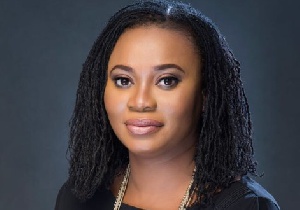Former chairperson of Ghana’s Electoral Commission (EC), Charlotte Osei, has given a disturbing account of how a mob allegedly affiliated with a political party attempted to burn down her father’s house.
She described this, among others, as personal threats and attacks she suffered during her tenure as chairperson of Ghana’s Electoral Commission.
Charlotte Osei gave this account while speaking at the 2025 Democracy Dialogues organised by the Goodluck Jonathan Foundation in Accra, saying her experience was both difficult and deeply personal.
Election 2020: Charlotte Osei breaks silence on current state of Ghana
She alleged that her detractors peddled many untrue narratives, which affected not just her but also her entire family, and that the constant lies about her worried her family.
She said, “There were a lot of lies, and so the whole fabric of the family was affected. It’s either they were worrying for themselves or constantly worrying about your safety.”
According to her, the situation became more threatening as calls on her to resign failed.
She said, “There was a time that a political party mob surrounded my dad’s house, and they were going to burn it down because of actions they felt I had taken. So those were the kinds of personal pressures that, as a woman, a mother, a daughter, a wife, and a sister, you have to deal with.”
She recounted that sexism, which is prejudice and discrimination against people based on their gender, and ageism, which is also prejudice and discrimination against people based on their age, were two additional unfortunate situations she faced.
She stated, “Being female, I was told directly by several people that it was not a job for a woman. Even my own father expressed the same fear. A lot of people thought I was too young, especially because I was coming after a legendary figure, Dr Afari-Gyan.”
Focusing on regional organisations, Charlotte Osei criticised ECOWAS and the African Union for adopting a stance of “quiet diplomacy” in response to flawed elections and manipulations of constitutions.
Meanwhile, she pointed out that these bodies are more outspoken in their condemnation of military coups that arise from flawed elections and constitutional manipulations —a situation that is gradually gaining notoriety in the sub-region.
“When ECOWAS tells us, for instance, that their policy on good governance has zero tolerance for coups, we say yes. But when there are coups, ECOWAS is very loud in condemning them,” she posited.
“Yet, when there’s constitutional manipulation or flawed elections, ECOWAS would deploy quiet diplomacy. That’s why the people are not happy,” she added.
She warned that African leaders must be worried about the show of frustrations by many young men and women of Africa due to unemployment and exclusion from governance, and take immediate steps to address the situation, which keeps growing across the continent.
She emphasised that “Ultimately, leaders need to do better. Institutions like the African Union and ECOWAS need to do better so they are not seen as clubs of leaders meeting among themselves, but as bodies that engage the people.”
NAAB/SEA
Will Ghana pass the Anti-Witchcraft Bill? Find out in the latest episode of The Lowdown on GhanaWeb TV in this conversation with Amnesty International:



